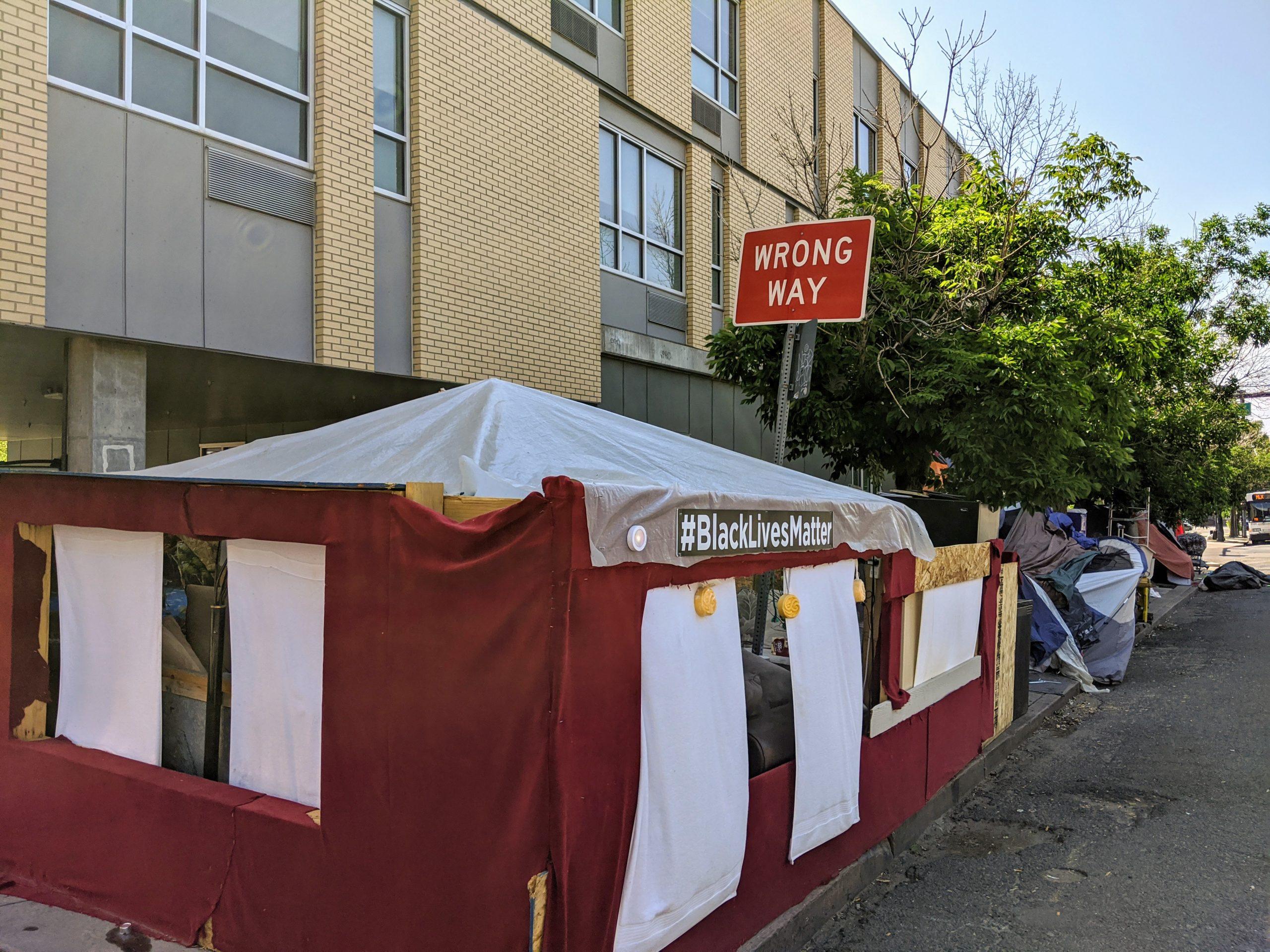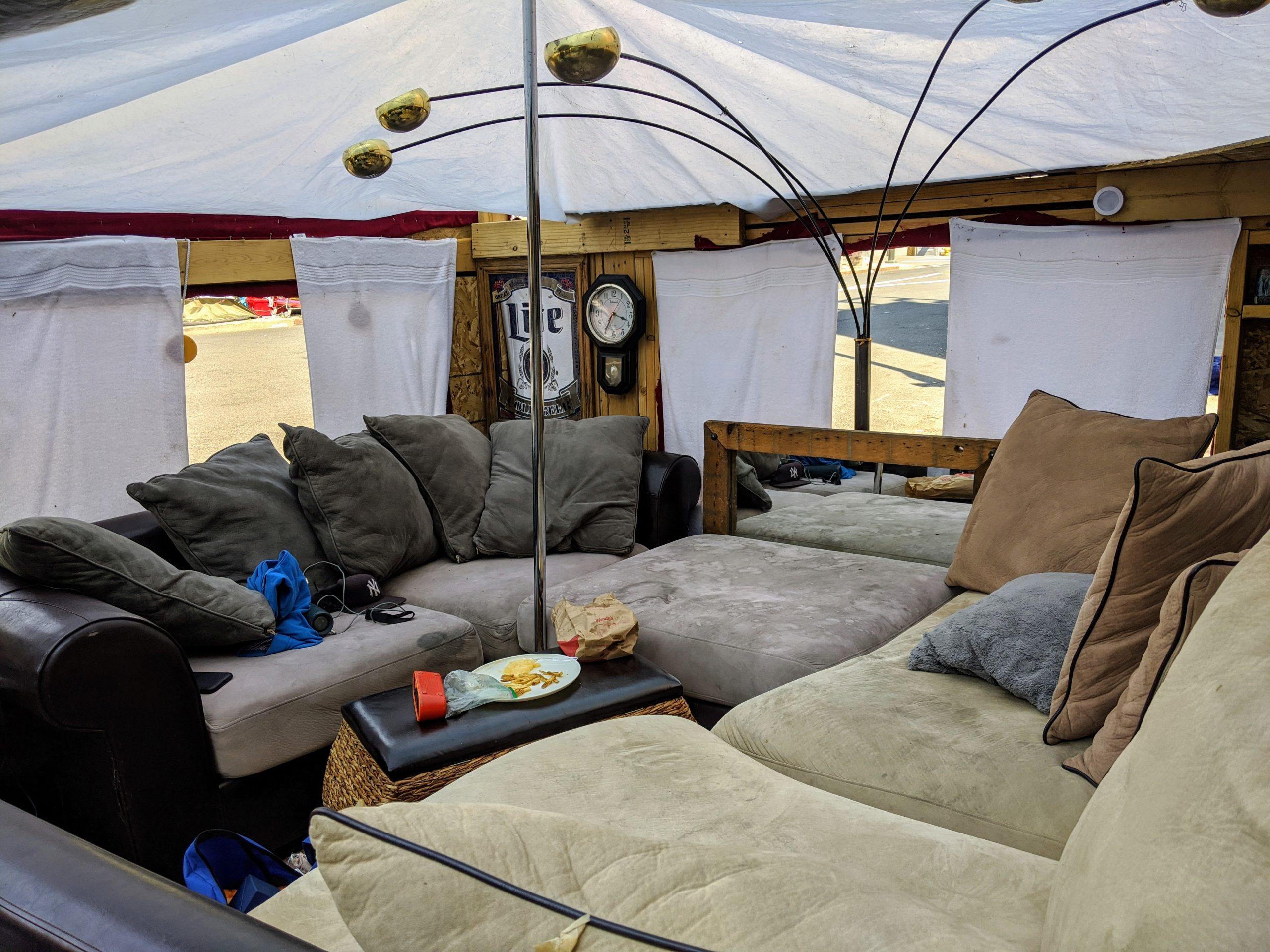Denver's health department declared several blocks in Five Points unsafe but was unable to send in cleaning crews Wednesday because people experiencing homelessness who were living there refused to move.
Peter McLean said he has moved his tent three times in as many months for cleanups and each time lost items such as cell phones he needs to stay in touch with family and to hunt for jobs.
"Instead of giving us a designated area to go, they want to keep shifting us out," McLean said Wednesday, hours after the departure of cleanup crews accompanied by police. He and his tent were still standing, near the corner of 22nd and Stout streets.
Some campers did leave, but "most people just said, 'No,'" said Terese Howard of the advocacy group Denver Homeless Out Loud.
Howard said the campers were supported by about 100 protesters. She said fewer people have responded to past attempts to organize such demonstrations, but in the wake of anti-racism protests in Denver following the death in Minneapolis of a Black man in police custody, people are "more attentive, more aware of the inequities in our society."
Homelessness has had a disproportionate impact on African Americans, who struggle even more than whites with rising housing prices and stagnating wages after economic opportunity has been denied and racist housing restrictions imposed for generations.

Tammy Vigil, a spokesperson for Denver's Department of Public Health & Environment, said in an email Wednesday that the block bounded by 22nd, Stout and Champa streets and Park Avenue West and a stretch of 22nd Street from Champa Street to Broadway had been targeted because of the health and safety risks posed by trash, human waste and used needles.
"Due to interference from people at the site, crews will wait to complete the initial cleaning until it is safe to continue," Vigil said, adding that the area would be closed to all but vehicles passing through and for access to homes and businesses until the cleanup was complete.
A man who gave his name as Divine Qourters said his home was a structure of wooden panels and poles and a plastic sheeting roof he had built between the street and the sidewalk near the corner of 22nd and Champa. Qourters' shack, behind a Salvation Army transitional housing, was furnished with sofas, decorative items and appliances powered by a generator. Wednesday afternoon he was doing brisk business selling cold sodas from his refrigerator.
"It's living. I'm not camping," he said. "There might be a camping ban. There's not a living ban."
Qourters said he did not need to move for a cleanup because he kept his area clean and insisted that people living in tents nearby did the same.
"I respect all efforts to try to keep the city clean," he said.
Vigil did not say when the health department would make another attempt to clean the area. Howard said protesters would be back on Thursday.
The city had distributed flyers to people experiencing homelessness in the area offering to store possessions for up to two months. The flyers also directed people to such places as the National Western Complex, which has been turned into a large men's shelter since the coronavirus hit Denver.
McLean said he did not feel safe in enclosed spaces. He also questioned security at the National Western, saying he had seen reports that a man was stabbed to death there Tuesday night.
Although the latest cleanup has been put off, McLean said he was planning to move, hoping to find an area where he could go unnoticed, at least for a time.
"A designated spot would alleviate a lot of the chaos," McLean said.
Faith leaders and organizations that provide services for people experiencing homelessness have called on the city to provide temporary sanctioned camping areas with regular hygiene, sanitation and health services. Mayor Michael Hancock has long opposed sanctioned camping, saying the city must offer more permanent shelter.














